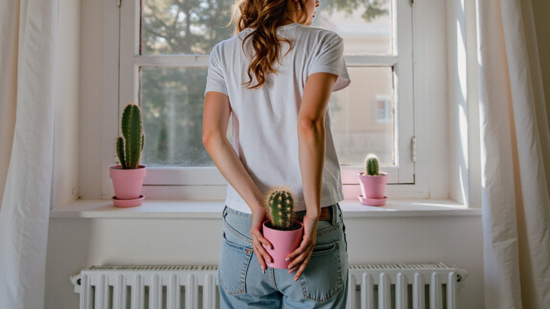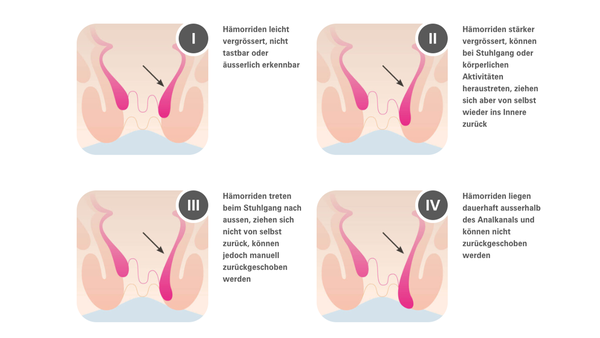Everyone has haemorrhoids! And that is very important and a good thing.

Haemorrhoids & haemorrhoidal disorders
Normal haemorrhoids
Haemorrhoids get a rich supply of blood and are located in the mucous membrane of the rectum, about three to four centimetres above the anal canal. Along with the sphincter muscle, these vascular cushions help prevent the unintended release of fluids or gases from the intestine.
When at rest, haemorrhoids are engorged with blood. They only swell when the bowel needs to be emptied and you go to the toilet. This is because as soon as the sphincter muscle relaxes during a bowel movement, blood flows out of the haemorrhoids. After a bowel movement, the haemorrhoids refill with blood and help seal the anus.
Haemorrhoidal disorders
70% of all adults are likely to suffer from haemorrhoids.
Haemorrhoids develop when blood collects in the vascular cushions (haemorrhoids) and is unable to flow freely. The condition usually manifests itself through itching, burning, pain, oozing and, in severe cases, bright red superficial blood in the stool during a bowel movement. This can sometimes lead to tears in the anal mucosa (anal fissures), inflammation and eczema in the anal area, and an increased risk of infection.
Haemorrhoids are classified into four degrees of severity, ranging from mild to severe, depending on their size and characteristics. The size of haemorrhoids can vary depending on the time of day and position. The initial stages (grades I and II) are most common. At the advanced stages, it is advisable to consult a doctor.

Other anal pain
Typical symptoms of haemorrhoidal disorders do not always appear alongside enlarged haemorrhoids. Other conditions, such as anal fissures, anal eczema, and anal vein thrombosis, can also cause similar symptoms. Always consult a specialist if in doubt.
A deep understanding of anal health
Useful information about haemorrhoids and other anal discomforts.
-

Unknown and common side effects during pregnancy
Haemorrhoids during pregnancy? Often kept quiet, but common. How to effectively prevent discomfort.
Read more -

The importance of sitting and movement
Sitting for long periods puts strain on the intestines. Why exercise is important – and what Napoleon has to do with haemorrhoids.
Read more -

It all comes down to the right diet
Spiciness alone is not the problem – poor nutrition can also contribute to discomfort. Here are some simple ways to support your digestion.
Read more